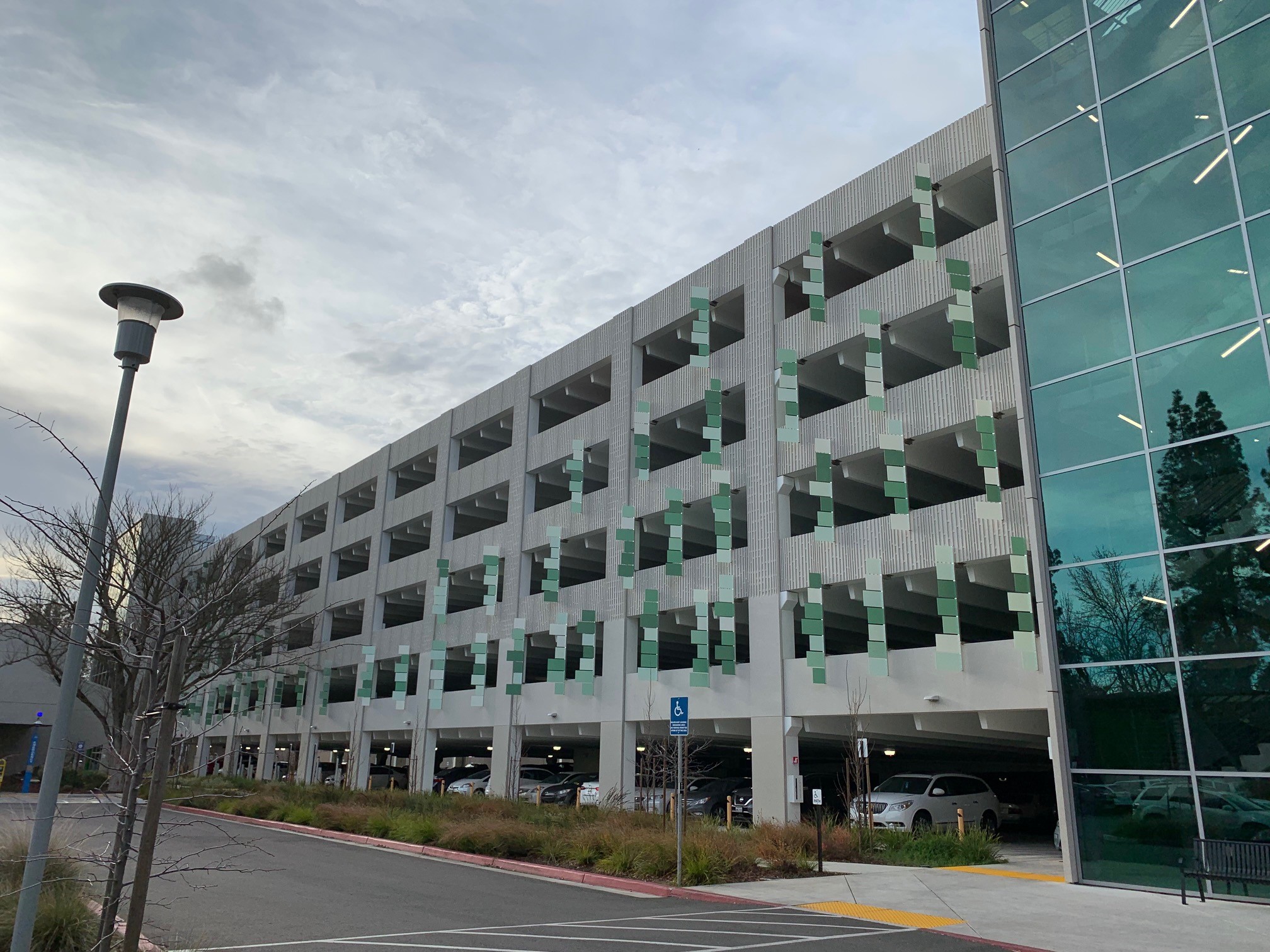 Parking Structure 5 has become a venue for virtual classes, study and homework for students who need access to a wifi connection. (Sacramento State/Brian Blomster)
Parking Structure 5 has become a venue for virtual classes, study and homework for students who need access to a wifi connection. (Sacramento State/Brian Blomster)
By Dixie Reid
After classes moved to online and campus buildings were closed in March because COVID-19, Sacramento State students without reliable internet at home suddenly had problems gaining access to their courses.
To help meet that challenge, the experts in the Division of Information Resources & Technology (IRT) took action and within days turned Parking Structure 5 (PS5) into a drive-in wifi hot spot and unique study hall.
Since March 27, as many as 100 students each weekday park, pull out their laptops, and attend class virtually or do homework while remaining in their vehicles, linked to the internet through Eduroam.
Floors 2-5 of the six-story PS5 are open from 10 a.m. to 4 p.m. Monday through Friday. University Transportation & Parking Services (UTAPS) personnel regularly patrol the structure to help ensure student safety.
“We chose PS5 because it’s the newest parking structure, and it’s bright and well-lit,” said Ted Koubiar, IRT’s senior director of operations and network services. “It’s at the front entrance to the campus, so students don’t have to go very far.”
And PS5 stays relatively cool, even as Sacramento heats up.
IRT used the building’s existing telecom system to turn the parking structure into a wifi hot spot. The best internet reception can be found on the north and south sides of PS5, and technicians are working to improve connectivity throughout the structure.
Lack of reliable home internet wasn’t the only problem students faced when Sac State shifted to distance learning. Many don’t own a computer.
IRT already had 300 laptops available for short-term student checkout, but with faculty and staff working from home, the demand for equipment increased significantly. The division has since bought and distributed an additional 700 Dell and Lenovo computers.
“We purchased them in several batches,” said Mark Hendricks, interim vice president for Information Technology and Sac State’s chief information officer. “We didn’t know what to expect. The first purchase of 450 computers we thought would partially replace the 300 we were handing out, but we went through those and got another 200, and then another 130, and so on.”
The laptops cost about $1,000 apiece and were purchased through various funding sources.
IRT worked with the campus mailroom staff to ship equipment to people who are leery of venturing out during the pandemic.
“Initially, most of the requests were for laptops,” said Teresa Palmer, director of IRT’s customer service desk. “But as people started to get offsite, at home with their families, they realized that they didn’t have the level of internet service they needed. So once we got the laptops out the door, we started to see more and more requests for hotspots.”
IRT has so far distributed 189 portable wifi hotspots, as well as webcams for people who have a laptop and internet but no camera for Zoom interactions.
“This says a lot about how good our team is,” Hendricks said. “They saw the need and made it happen.”
